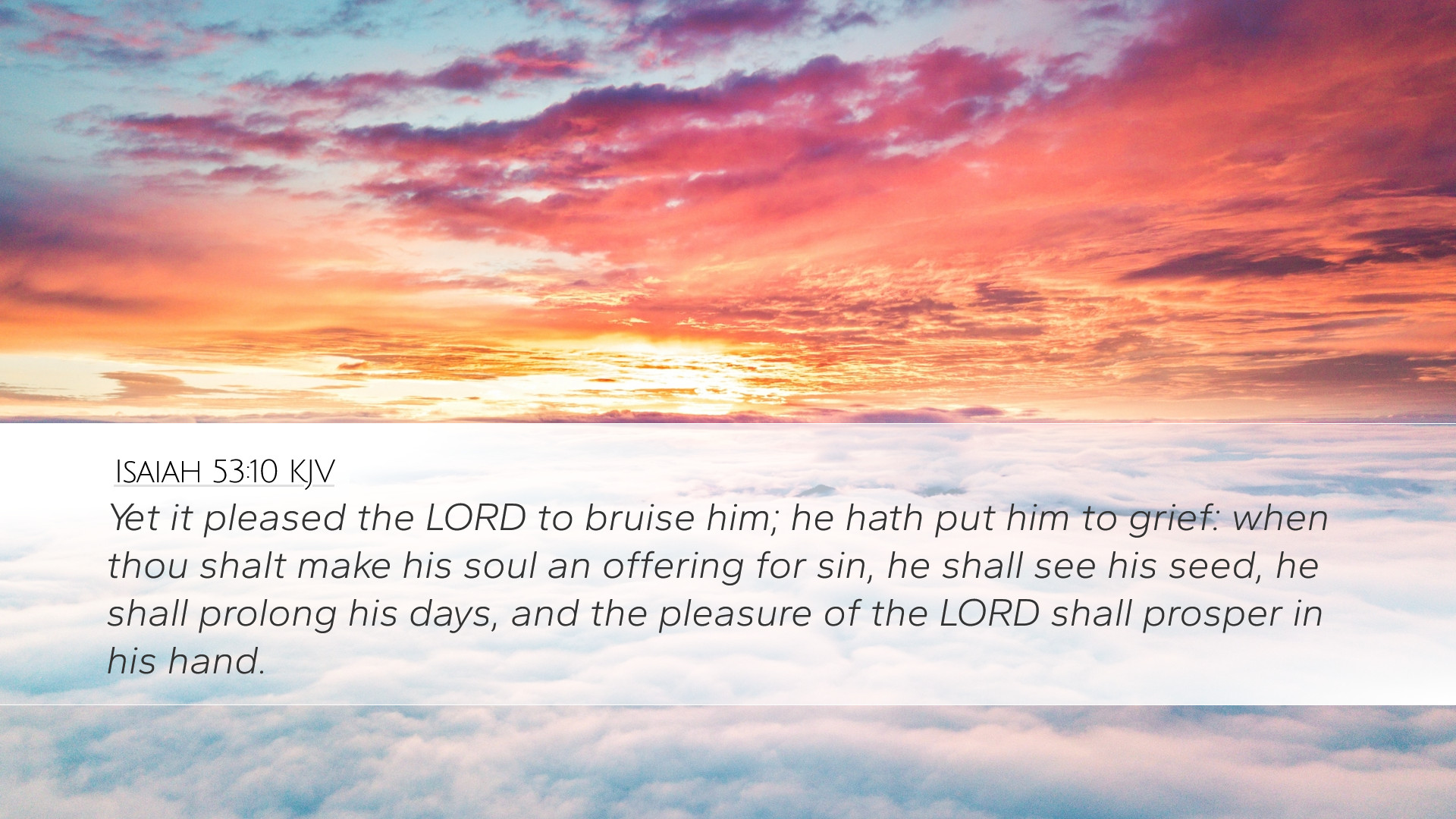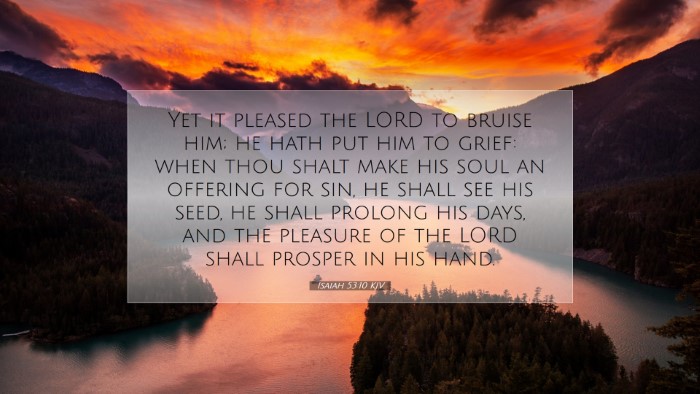Commentary on Isaiah 53:10
Verse: "Yet it pleased the Lord to bruise him; he hath put him to grief: when thou shalt make his soul an offering for sin, he shall see his seed, he shall prolong his days, and the pleasure of the Lord shall prosper in his hand."
Introduction
The prophecy of Isaiah 53 is one of the most profound declarations concerning the suffering servant, ultimately recognized by Christians as fulfilled in Jesus Christ. Isaiah 53:10 serves as a pivotal point in this prophetic passage, shedding light on the purpose and result of the suffering endured by the servant. This commentary synthesizes insights from public domain theologians, including Matthew Henry, Albert Barnes, and Adam Clarke, to elucidate the depth of this verse.
Theological Implications
Isaiah 53:10 presents a striking paradox: it "pleased the Lord" to bruise the servant. This idea challenges human understanding, as it suggests that suffering can have divine intention and purpose.
Divine Purpose in Suffering
Matthew Henry emphasizes that God's willingness to bruise His servant illustrates profound love and a deeper purpose beyond mere suffering. The servitude and agony of Christ were ordained for the redemption of humanity. Henry notes that the Lord’s actions were not arbitrary, but a functioning part of His divine counsel, aiming to redeem His people through the ultimate sacrifice.
Messianic Fulfillment
Albert Barnes underlines the significant Messianic prophecy encapsulated in this verse. He states that the servant’s suffering is not just a personal ordeal, but a necessary act for the atonement of sin. Barnes draws attention to the phrase “offering for sin,” confirming that this prophecy specifically describes the redemptive work of Jesus Christ, who was given up for the sins of many.
The Nature of Divine Satisfaction
Adam Clarke articulates that the phrase "it pleased the Lord" indicates God’s satisfaction with the suffering servant's sacrifice. Clarke explains that this satisfaction arises from the efficacy of the suffering to fulfill God's justice and to extend mercy to sinners, affirming that the sacrifice was viewed as a means to restore the relationship between God and humanity.
Consequences of the Suffering
The latter part of the verse introduces the outcomes that result from the servant's suffering. This includes the promise that he "shall see his seed" and "prolong his days." These phrases signify not only resurrection but also the establishment of a lasting legacy through those who would come to believe in him.
Reading Resurrection Language
Barnes interprets the phrase "he shall see his seed" as a prophetic allusion to the resurrection of Christ and the establishment of His kingdom. The "seed" refers to both the immediate disciples and the larger body of believers who would come to find faith in Him through the ages.
Extended Life and Legacy
Matthew Henry adds that the reference to “prolong his days” signifies the result of resurrection signaling eternal life. It indicates the enduring nature of Christ’s reign and His everlasting existence as not only a historical figure but as a present and active Savior in the lives of believers.
Conclusion
Isaiah 53:10 encapsulates the heart of Christian soteriology—the doctrine of salvation through Christ. The insights gathered from the writings of Henry, Barnes, and Clarke together reveal a rich tapestry of theological meaning surrounding this verse.
- The intersection of suffering with divine purpose: It challenges believers to find meaning in their own sufferings.
- The affirmation of the Messianic prophecies: It bolsters faith in Jesus as the ultimate offering for sin.
- Hope of resurrection: It assures believers of eternal life and a legacy built on faith.
In the framework of both historical and theological perspectives, Isaiah 53:10 stands as an eternal reminder of God's plan for redemption through suffering, bringing hope and eternal promise to all who believe.


